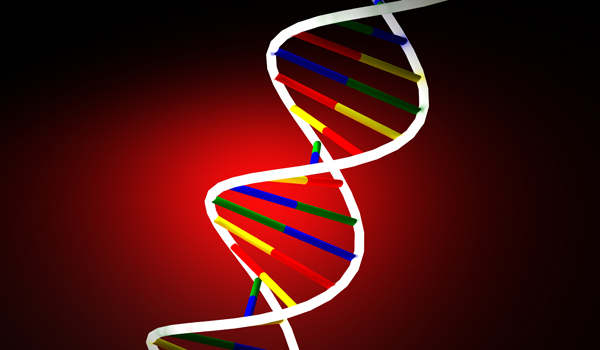Why Your DNA May Not Be Your Destiny

NEW YORK — Ten years ago, when researchers completed the first map of all the genes of human beings, the immense undertaking promised to revolutionize the field of molecular medicine. It did, but something was still missing.
By sequencing the 3 billion chemical base pairs that make up human DNA, scientists were able to glean new information about genes and how they are expressed. Yet there were hints that something else might be controlling which genes are turned on and off, said Jean-Pierre Issa, director of the Fels Institute for Cancer Research and professor of molecular biology at Temple University in Philadelphia.
"When the human genome was sequenced, some scientists were saying, 'That's the end. We're going to understand every disease. We're going to understand every behavior.'" Issa said. "And it turns out, we didn't, because the sequence of the DNA isn't enough to explain behavior. It isn't enough to explain diseases."
In the 1950s, an English developmental biologist named Conrad Waddington suggested that something was working on top of the DNA sequence to modulate gene expression.
Scientists who advanced Waddington's hypothesis began investigating whether experiences or a person's environment could trigger genetic changes. This work came to be known as epigenetics, and it suggested that human development was not completely hardwired in DNA.
"When you think of nurture and nature, what epigenetics represents is the interface between those two influences," said Frances Champagne, a behavioral scientist at Columbia University in New York.
Champagne and Issa were two of four scientists who participated in an event here Saturday (June 1) called "Destiny and DNA: Our Pliable Genome," which is part of New York's annual World Science Festival. [Watch a Replay of the World Science Festival Talk]
Get the world’s most fascinating discoveries delivered straight to your inbox.
Epigenetic changes are biological markers on DNA that modify gene expression without altering the underlying sequence. Researchers have found that environmental factors — such as trauma, stress and even diet — can activate epigenetic changes.
Although genes are mostly hardwired at the moment an egg is fertilized by a sperm, epigenetics suggests that DNA may be more susceptible to change than was previously thought.
"Most of the program is determined; however, the program is not 100 percent accurate or efficient," Issa said. "There's a little bit of wobbliness, and that's where the environment can play a role."
Long-lasting effects
Furthermore, epigenetic traits can be passed down from generation to generation, said Randy Jirtle, a visiting professor at McArdle Laboratory for Cancer Research at the University of Wisconsin-Madison.
For example, a study published in 2005 in the Journal of Clinical Endocrinology and Metabolism found that pregnant women who witnessed the 9/11 attacks on the World Trade Center passed on higher levels of a stress hormone, called cortisol, to their babies.
Other studies investigated the ways abuse, famine and trauma could leave "scars" on DNA, in the form of epigenetic markers.
Jirtle has conducted research on mice to examine how the epigenome is affected by changes in nutrition. In one study, Jirtle found that mice whose mothers were fed food with fewer vitamins were more susceptible to obesity and other diseases, suggesting nutrition changes may have generational impacts.
"These were studies in mice, but there's reason to believe it happens in humans, too," Jirtle said.
Even though epigenetics is a burgeoning field of study and there are still many unknowns, the implications for medical research are enormous, Issa said. His own work focuses on how understanding epigenetics can lead to better treatments for cancer.
Issa and his colleagues found lung tissue from a lung cancer patient showed different epigenetic markers than those on healthy lung tissue. The researchers are currently investigating whether cancer patients can be treated with drugs that "reprogram" cancer cells by reconfiguring the epigenetic markers.
If the method works, reshuffling the epigenome could prolong a cancer patient's life, offer a better alternative to chemotherapy and, perhaps one day, even cure cancer, Issa said.
This emerging research represents a paradigm shift, one in which biology now needs to be viewed through the lens of both genomics and epigenetics, the scientists said.
"Genes are not strictly our destiny," Issa said. "Taking care of our epigenome may lead to longer, healthier lives."
Follow Denise Chow on Twitter @denisechow. Follow LiveScience @livescience, Facebook & Google+. Original article on LiveScience.com.

Denise Chow was the assistant managing editor at Live Science before moving to NBC News as a science reporter, where she focuses on general science and climate change. Before joining the Live Science team in 2013, she spent two years as a staff writer for Space.com, writing about rocket launches and covering NASA's final three space shuttle missions. A Canadian transplant, Denise has a bachelor's degree from the University of Toronto, and a master's degree in journalism from New York University.
 Live Science Plus
Live Science Plus





